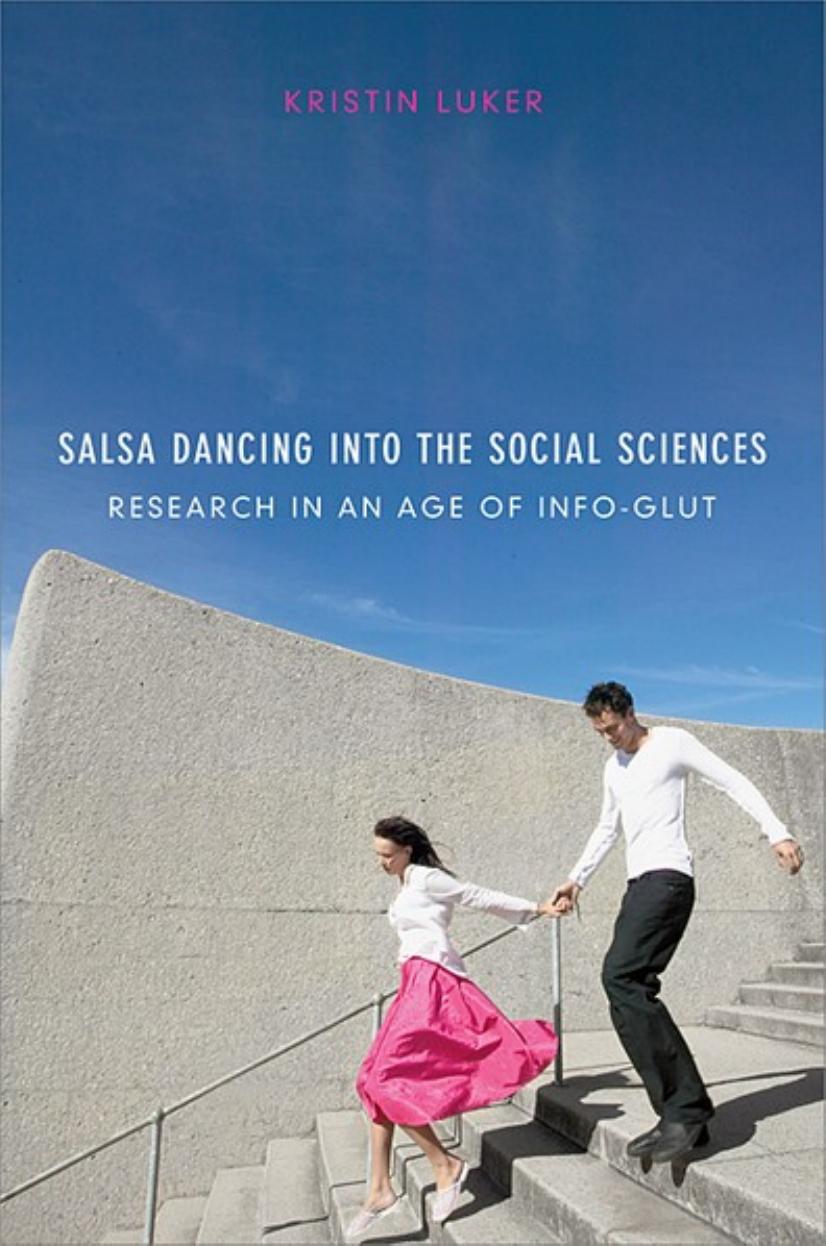Salsa Dancing into the Social Sciences: Research in an Age of Info-glut by Kristin Luker

Author:Kristin Luker
Language: eng
Format: epub, pdf
Publisher: Harvard University Press
Interviews
As is the case with participant observation/ethnography, salsa-dancing sociologists do interviews in order to build theory.17 By and large, we are not so much interested in the veracity of the interviews, in some cosmic sense of the word, as we are in the deep truth of them.18 Regardless of whether things happened the way people said they did, what interests us is that people chose to tell us that they happened that way.
This puts me in a tricky position with respect to both canonical sociologists and the post-postmodern types. I am under no illusions that interviews are in any way a realistic account of some aspect of social life (a criticism that canonical sociologists often level at interviewers). Likewise, I am entirely aware that interviews are “narratives,” stories about what the person being interviewed thinks happened, or thinks should have happened, or even wanted to have happened, as the postmodernists claim. But that’s exactly the point. I think that interviews are, almost by definition, accurate accounts of the kinds of mental maps that people carry around inside their heads, and that it is this, rather than some videotape of “reality,” which is of interest to us.
The point of interviews, however, is not what is going on inside one person’s head, but what is going on inside lots of people’s heads. When you hear the same thing from people all over the country who don’t know one another, you can be reasonably sure that you are tapping into something that is reliably social and not just individual.
My working assumption is that, as Ann Swidler and Elisabeth Clemens tell us, people in a given society at a given time have only a limited number of cultural tools, or templates, available to them to make sense of the world in which they find themselves.19 (Or, since much of my work has to do with social movements, we could say that there are only a limited number of “frames” that people for or against an issue can bring to bear on the matter, and that much of what a social movement does is to help refine and popularize those frames.)20 So when I do interviews, what I am looking for is how people put together the inventory of tools they have available to them. Much of my own work also has to do with how that particular toolkit evolved over time—how the “discourses” on it emerged and were modified.
How do you actually do an interview? Here’s the way I do it. First, I think long and hard about the “hook” I will use to explain my study to people I would like to interview, thinking about what version of it makes it compelling and attractive. I know what I want to find out from them, but how do I present it to them to make it worth their while to talk to me? I keep hammering home this point because it is one of the things that I spend the most time thinking about,
Download
Salsa Dancing into the Social Sciences: Research in an Age of Info-glut by Kristin Luker.pdf
This site does not store any files on its server. We only index and link to content provided by other sites. Please contact the content providers to delete copyright contents if any and email us, we'll remove relevant links or contents immediately.
| Anthropology | Archaeology |
| Philosophy | Politics & Government |
| Social Sciences | Sociology |
| Women's Studies |
Cecilia; Or, Memoirs of an Heiress — Volume 1 by Fanny Burney(32548)
Cecilia; Or, Memoirs of an Heiress — Volume 2 by Fanny Burney(31947)
Cecilia; Or, Memoirs of an Heiress — Volume 3 by Fanny Burney(31931)
The Great Music City by Andrea Baker(31917)
We're Going to Need More Wine by Gabrielle Union(19034)
All the Missing Girls by Megan Miranda(15958)
Pimp by Iceberg Slim(14488)
Bombshells: Glamour Girls of a Lifetime by Sullivan Steve(14057)
For the Love of Europe by Rick Steves(13913)
Norse Mythology by Gaiman Neil(13349)
Talking to Strangers by Malcolm Gladwell(13349)
Fifty Shades Freed by E L James(13233)
Mindhunter: Inside the FBI's Elite Serial Crime Unit by John E. Douglas & Mark Olshaker(9324)
Crazy Rich Asians by Kevin Kwan(9279)
The Lost Art of Listening by Michael P. Nichols(7494)
Enlightenment Now: The Case for Reason, Science, Humanism, and Progress by Steven Pinker(7306)
The Four Agreements by Don Miguel Ruiz(6744)
Bad Blood by John Carreyrou(6611)
Weapons of Math Destruction by Cathy O'Neil(6265)
